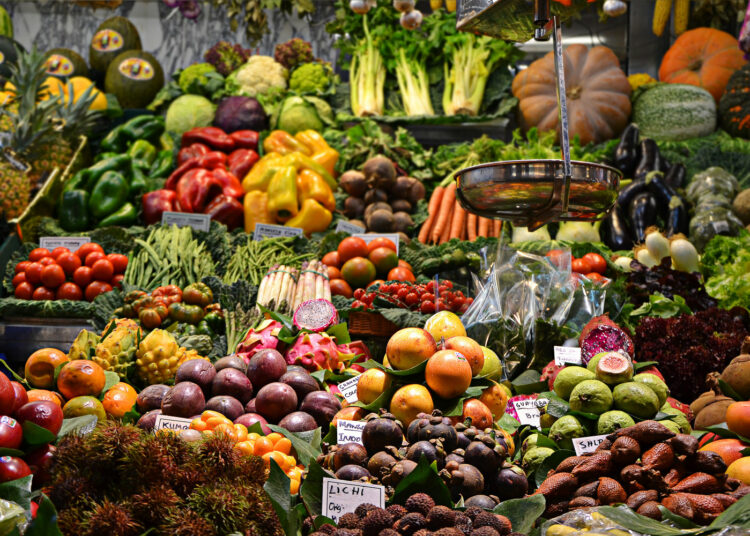Every year on October 16, over 150 countries across the globe commemorate World Food Day, a date set aside to draw attention to the critical issue of hunger and malnutrition, while bearing in mind the importance of sustainable agriculture.
The world today confronts unprecedented food crises which is worsened by climate change, pandemics, and geopolitical wars, hence the 2024 theme, “The Right to Food for a Better Life and a Better Future,” for urgent action.
At the heart of this theme is a fundamental human right: the right to food. Recognised in the 1948 Universal Declaration of Human Rights, this right emphasises that everyone, regardless of location or circumstance, deserves access to safe, nutritious food. It speaks to the core of human dignity and the need to eradicate hunger.
However, the reality is far more complex even as the global community battle to save huge portion of the population from hunger with the United Nations Sustainable Development Goals targeting 2030, hunger still plagues hundreds of millions of people worldwide, and the situation is most dire in regions like sub-Saharan Africa, where food insecurity continues to devastate communities.
According to the latest State of Food Security and Nutrition in the World report by the Food and Agriculture Organization (FAO), 733 million people globally faced hunger in 2023. One in five of these people resides in Africa. Even more concerning, 2.33 billion people across the world faced moderate or severe food insecurity last year, and over 2.8 billion people were unable to afford a healthy diet. If current trends continue, the FAO warns that by 2030, 582 million people will be chronically undernourished.
These figures beam light on the complex and interlinked nature of global food security challenges. Climate change, for instance, continues to disrupt agricultural productivity through increasing instances of droughts, floods, and other extreme weather events.
Economic instability, conflict, and political upheaval have also contributed to food scarcity, further compounded by the economic aftershocks of the COVID-19 pandemic.
While these issues are global in scope, the impacts are felt most acutely in developing regions, particularly in sub-Saharan Africa. Here, millions of families struggle to meet their basic food needs. Rural areas, in particular, bear the brunt of food insecurity, with widespread poverty and limited access to resources preventing sustainable agricultural development.
Nigeria is no stranger to the challenge of food insecurity. Despite its vast agricultural potential, the nation is grappling with an increasing food crisis, driven by factors such as insecurity, economic shocks, floods, and the removal of fuel subsidies that have caused inflation to spiral.
This factors have pushed nearly 32 million Nigerians to food insecurity as reported in the March 2024, government-led Cadre Harmonise.
Nigeria’s food security situation is particularly precarious because of its large rural population, where agricultural productivity is often hampered by underinvestment, lack of modern farming techniques, and inadequate infrastructure. Moreover, farmers are often at the mercy of unpredictable weather patterns, which have become more severe due to climate change.
While the Nigerian government has introduced several initiatives to address these issues, the scale of the challenge remains daunting. Economic reforms are being implemented to stimulate productive capacity and reduce the cost of living, but the nation continues to face high food prices, which puts nutritious meals out of reach for many households.
To tackle the country’s food security challenges, the Nigerian government has launched a series of short- and long-term interventions. These include releasing over 102,000 metric tons of staple foods, such as maize and millet, from the National Food Reserve to alleviate food shortages.
In an address to mark the 2024 World Food Day in Abuja, Minister of state for agriculture and food security, Sabi Abdullahi linked the current food crisis to factors such as rapid population growth, climate change, and global instability, compounded by the lingering effects of the COVID-19 pandemic.
He warned that global hunger is expected to worsen unless immediate action is taken to reform food systems, reduce food waste, and promote sustainable agricultural practices.
At the national level, the minister acknowledged that Nigeria’s food security has been severely affected by economic shocks, insecurity, floods, and the removal of subsidies.
He noted that the Nigerian government, under President Bola Ahmed Tinubu’s leadership, is implementing economic reforms aimed at stimulating productive capacity, creating jobs, and alleviating the high cost of living.
The minister highlighted Nigeria’s achievements in agricultural production, noting that in 2017, the country ranked first in global cassava and yam production and became Africa’s largest rice producer in 2019, with a production level of 9 million metric tons.
He affirmed the government’s commitment to mechanised farming and announced plans to cultivate 750,000 hectares of wheat in the 2024-2025 dry season farming to boost staple crop production and food affordability.
Abdullahi also reaffirmed the government’s resolve to promote inclusive participation in the agricultural sector, particularly for small-scale farmers, women, and youth.
He said, “The Right to Food for a Better Life and a Better Future,” and stressed its importance, emphasises the importance of ensuring access to safe and nutritious food for all. It highlights the core objective of the World Food Day and brings to mind the need to improve our food systems and promote efforts towards ending hunger and malnutrition.
“Nigeria’s current state of food security is threatened by continuous intensification of insecurity alongside economic shocks, floods, and subsidy removal.
“I want to call on governments at all levels, international organisations, private sector, civil society organisations and the general public to work together to bring food crisis and hunger to the top of the global agenda and invest in short, medium and long-term solutions that will provide everyone with enough food to eat.”





